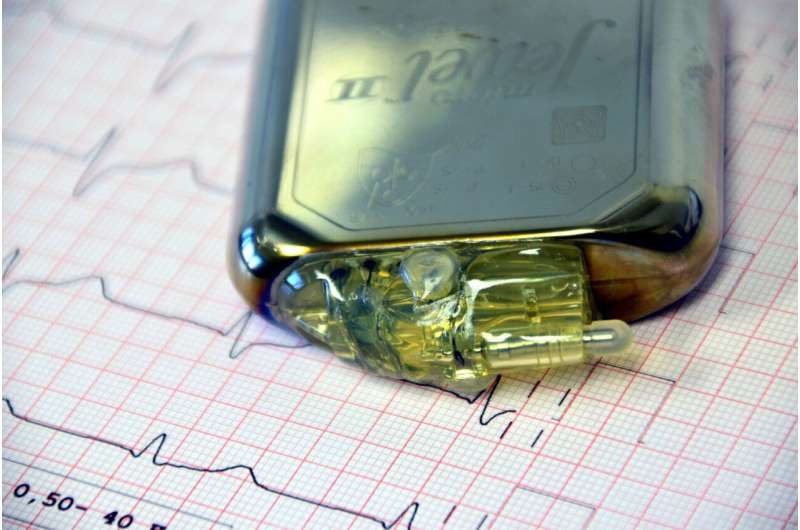
Lifesaving implantable defibrillators should be given to heart failure patients at highest risk of heart rhythm problems at an earlier stage in their treatment, according to a new study.
The paper was published recently in Circulation by researchers from King’s College London.
The team behind the multi-center clinical trial, led by Professor Divaka Perera from the School of Cardiovascular Medicine & Sciences say their results provide new evidence which could influence heart failure guidelines in the U.K., Europe and internationally.
There are 2.3 million people living with coronary heart disease in the U.K., and it is a leading cause of heart failure. For people who have severe heart failure due to coronary heart disease, as well as prescribing medication, doctors may insert stents to open any blocked arteries in the first instance. They then wait for at least 90 days to see if the pumping action of the heart has improved based on these treatments.
It’s only after this wait that patients are re-evaluated to see if they are still at high risk of a life-threatening heart rhythm disturbance and would benefit from having an implantable cardioverter defibrillator device (ICD). These defibrillators shock and kickstart the heart if it goes into a life-threatening rhythm or cardiac arrest.
Researchers recruited a total of 700 patients from 40 hospitals across the U.K. who had coronary heart disease and severely weakened function of the left ventricle of their heart. All patients received “optimal medical therapy” which included heart failure medication, and, in many cases, pacemakers designed to improve heart function and ICDs. Half of the patients were randomly assigned to also have stents fitted to open-up their narrowed arteries that supply the heart with blood. Patients were followed-up closely for at least two, and up to eight, years.
They found that stents did not reliably improve the heart’s ability to pump, nor did they reduce the risk of life-threatening heart rhythm disturbances, or number of cardiac arrests and deaths. As a result, researchers say that patients who are at risk should not have to wait until after stent insertion before they are fitted with a potentially lifesaving ICD.
While stents were shown not to improve heart function in patients with severe heart failure, the researchers stress that they are still an effective treatment for heart attack patients or people with angina (chest pain due to reduced blood flow to the heart).
“Our findings have revealed that many patients with high risk of heart failure could benefit from receiving an ICD straight away, rather than facing a 90-day wait. By showing that coronary stents had limited benefit for this group of heart patients, we have exposed a clear window of missed opportunity to reduce chances of dying from an abnormal heart rhythm. We hope our findings will influence existing guidance, so patients can be spared unnecessary waits to receive a potentially lifesaving defibrillator,” says Dr. Holly Morgan, BHF clinical research fellow at King’s College London BHF Center of Research Excellence.
Dr. Sonya Babu-Narayan, Associate Medical Director at the British Heart Foundation and consultant cardiologist, said, “The results from this large UK-wide trial could lead to re-evaluation of how best to treat people living with severe heart failure due to coronary heart disease. The findings suggest that the current ‘wait and see’ approach to find out whether a patients’ heart function improves with medication and stents isn’t always best, and that an unnecessary wait could even be the difference between life and death.”
More information:
Divaka Perera et al, Arrhythmia and Death Following Percutaneous Revascularization in Ischemic Left Ventricular Dysfunction: Prespecified Analyses From the REVIVED-BCIS2 Trial, Circulation (2023). DOI: 10.1161/CIRCULATIONAHA.123.065300
Journal information:
Circulation
Source: Read Full Article





